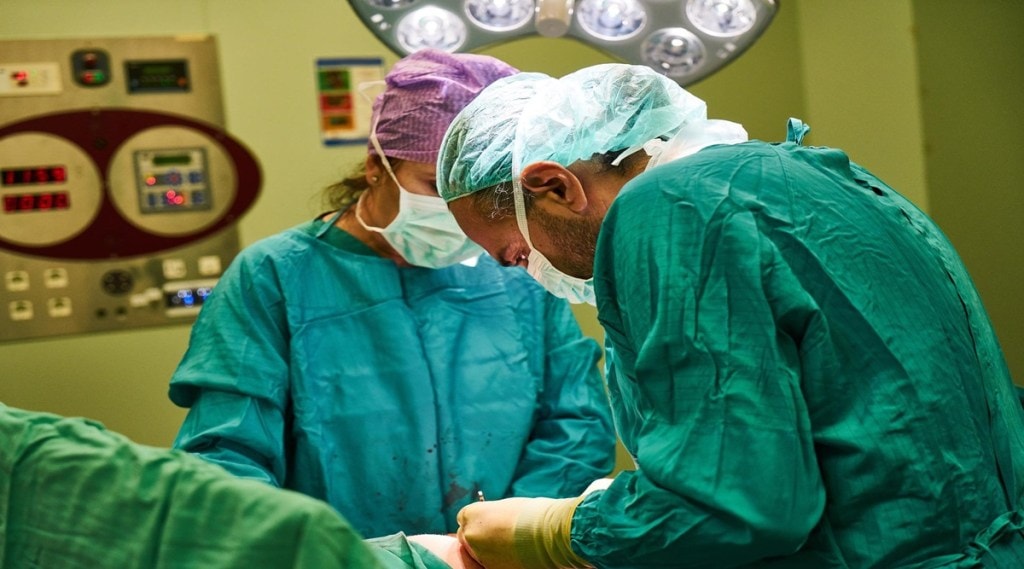25 years ago on 15 November 1998, India achieved a medical breakthrough by successfully performing its first liver transplant. The first successful LT in the country was performed on an 18-month-old child, Sanjay Kandasamy, with biliary atresia. Interestingly, it was also the case in which the child’s father became the first living related donor in India.
25 years later, Sanjay is now a doctor himself, practising medicine at a local hospital in his hometown in Kanchipuram. He is now actively creating awareness about organ donations and it can change the life of a recipient for good.
A team of doctors at Delhi’s Indraprastha Apollo Hospital led by Dr. Anupam Sibal, Apollo Hospitals’ Group Medical Director and Senior Pediatric Gastroenterologist, performed a life-saving liver transplant on him, making him the first pediatric liver transplantee in the country.
The Apollo Transplant program is one of the world’s largest and most comprehensive transplant programs performing more than 1600 solid organ transplants a year. The hospital group claims that the program offers a host of services which include Management of Liver Disease, Management of Kidney Disease, Liver and Kidney Transplantation, Heart and Lung Transplantation, Intestinal, Pancreas and GI Transplant Surgeries and Pediatric Transplant Services.
With 90 percent success rates, The Apollo Liver Transplant program is a beacon of quality and hope for patients from across the world, the doctors maintain.
According to Dr. Sibal, the organ transplant landscape has evolved a lot in the last 25 years.
“I think what has happened is that…over the last 25 years since the time the first transplant was performed…I think there has been a growing acceptance of this procedure both in the medical community and the community at large…we are now seeing more and more patients. People now know that they can get a new lease of life. This is motivating us to take on challenging cases that we couldn’t have earlier. Also, the high-quality comparative cost value proposition we have…because the cost of our transplant is one-seventh of what it is in the United States and this made it possible for us to perform this procedure on patients from more than 50 countries,” Dr. Sibal told Financial Express.com.
The shortage of organs is virtually a universal problem, but India’s position is worrisome as there is a lack of donors. It is not that there aren’t enough organs to transplant. Nearly every person who dies naturally, or in an accident, is a potential donor. Unfortunately, innumerable patients cannot find a donor.
According to the Directorate General of Health Services, there is a wide gap between patients who need transplants and the organs that are available in India. An estimated 2 lac patients die of liver failure or liver cancer annually in India, about 10-15 percent of which can be saved with a timely liver transplant. Hence about 25-30 thousand liver transplants are needed annually in India but only about one thousand five hundred are being performed.
“The biggest challenge is that very few people are opting for cadaver donation as a result of which more than 70 percent of the transplants are living-related in which a healthy person has to donate part of their liver and this can be avoided if we have enough cadaver donors and one cadaver donor can save the life of 7 people. So, there is a need to increase awareness about cadaver donations is important,” Dr. Sibal revealed.
He also said it is important for the patients and their families to consult doctors timely as it will help in avoiding the risk of complications.
“…a slightly earlier presentation to us…when the patient is not-so-sick makes the transplant process a bit easier because when they come very late…things get more difficult,” he added.
He also emphasised that obesity and alcohol abuse continues to a major contributor to poor liver health in India.
“We have a growing problem of obesity which can lead to fatty liver and it can lead to liver problems. We also have a problem with Alcoholic Cirrhosis, Alcoholic Liver disease…I think the Hepatitis B vaccination uptake has been good so hopefully in the years to come Hepatitis B incidences may go down. We now have a cure for Hepatitis C which is a very common cause of developing liver failure,” he pointed out.
Moreover, he explained that the majority of pediatric cases in India are congenital. Although these diseases cannot be prevented, timely diagnosis can make a lot of difference.








